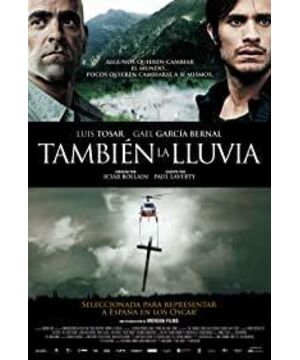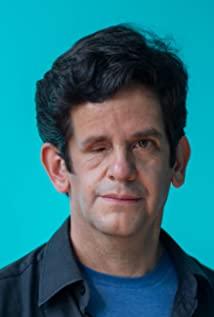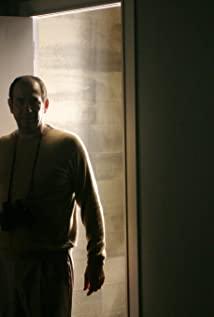This work adopts the way of drama within a play. The atrocities of Columbus in the New World and the "yaku" struggle of bolivia in reality formed by the director Sebastian form an intertext. The director's assistant made a documentary about the film and the director shot. The film distinguishes between the two parts.
The relationship between modernization and globalization and neocolonialism explored in the film is thought provoking. While filming the atrocities of the Spanish colonists against the Native Americans, Sebastian was also exploiting the natives. Similar satires abound in the film. For example, in the filming of the Aboriginal man being forced to drown his own child, the extras turned down the request. The dialogue between daniel and sebasitian is hilarious. "It's hard for them to imagine that kind of thing." "It's not something I made up, this is what happened in history." Another example is during rehearsal, the actor plays the priest Bartorome, telling the injustice suffered by the Indians, bystanders The quecha people tell us with their eyes that this is still the case. The scars of history have not healed, and neocolonialism is adding new scars.
The small exploitation of extras by directors and producers contrasts with the massive exploitation of bolivia by multinational corporations. This is reflected in the dialogue between the mayor of Cochabamba and the director. "I don't think someone who earns $2 a day can really afford a 300% rise in water bills." "But that's what you pay extras too." "That's because we're on a tight budget." "Who isn't? ?" No matter how much exploitation, who exploited it, it was always the people at the bottom who were exploited. The mayor's previous debate with the actor who played Columbus also sheds light on current anti-intellectualism. "Let those FMI bastards try to live on only $40 a month", the scientific conclusion drawn from data and analysis should be a tool of human beings, not a god of human beings. If in the field of the natural sciences there is still the natural world to test the correctness of theories, then in the field of the social sciences, as Weber said, our task is only to describe. A return to common sense was also the pursuit of Kant and Aristotle.
In addition, the performance of the actor who played Columbus inside and outside the play is also very interesting. If you put aside the blunt twist of costa at the end (this plot makes the role of costa faulty), only this person really cares about the indigenous people. In contrast, the director who knows the history best cares only about the film, whether it is the words to discourage costa (this storm will be forgotten, but our film will not), or the specific behavior (the big trouble of hiring daniel), it is difficult. Isn't this the director's self-deprecation?
In the end, despite the director's virtuosity and homage to many films, this is a film told from the perspective of the "other." The ending doesn't focus on the bolivia's struggle for "yaku" and instead tells the story of a suddenly-turned-producer who saves a little girl. Although it brings some warmth to the film, when I see the wounds around the little girl, I feel unspeakably weird. The blunt turn at the end is the film's biggest flaw.
View more about Even the Rain reviews











